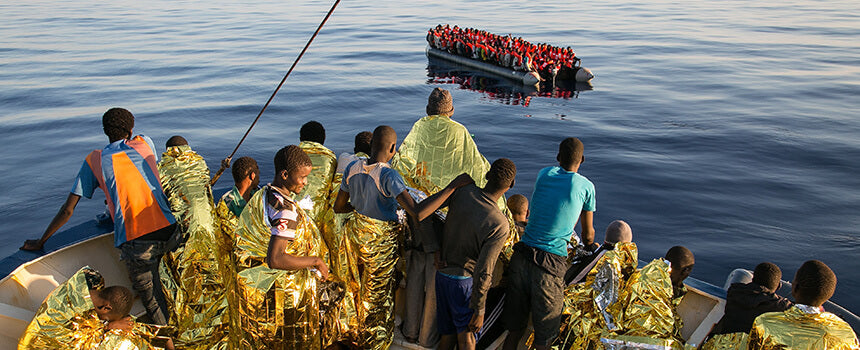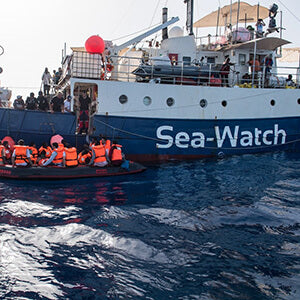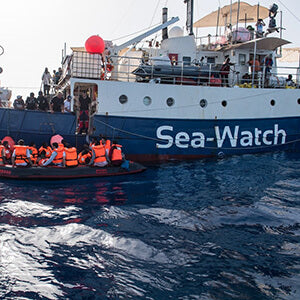Day 2
Four bottles of water for refugees in distress at sea
 Escape across the Mediterranean Escape across the Mediterranean
Escape across the Mediterranean Escape across the Mediterranean


Sea rescue of refugees in the Mediterranean

need
Drinking water for refugees in distress in the Mediterranean.
activity
Sea-Watch buys drinking water bottles and distributes them to refugees on the refugee boats and on the rescue boat Sea-Watch 2.
Measurable performance
Number of drinking water bottles that could be distributed to refugees.
Result
Refugees who find themselves in distress at sea in the Mediterranean are provided with sufficient drinking water.
Systemically relevant impact
Rescuing refugees in distress in the Mediterranean.
background


The good deed
AboutMediterranean
/
Capital city
/
Population
/
Gross domestic product
per capita per year
/
Human Development Index
(Human Development Index)



